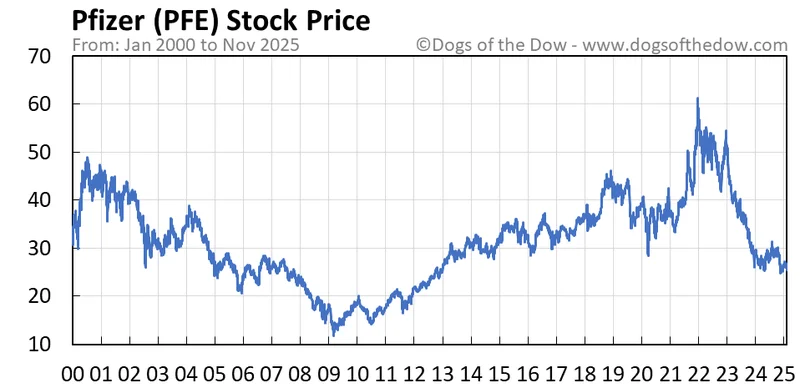On the surface, it was just another headline in the endless churn of financial news, the kind you’d scroll right past on your way to something more interesting: Pfizer Gets Metsera: Why The $20.65 CVR Is Highly Likely To Pay Out (In Part) (NYSE:PFE). A big fish eats a smaller fish. The market adjusts. We all move on.
But that’s not the story. Not even close.
When I first saw the news, it wasn't the multi-billion dollar price tag or the complex CVR payout structure that made me sit up straight in my chair. It was the other name in the story, the one that lost the bidding war: Novo Nordisk. That’s when I knew this wasn’t just a transaction; it was a declaration. This was the opening shot in a war for the future of human biology, and a tiny company named Metsera was the prize.
Imagine two titans of industry, say, Ford and Tesla, getting into a ferocious, no-holds-barred bidding war not over some massive factory, but over a small, obscure startup working out of a garage. What would that tell you? It would tell you that whatever is happening in that garage is about to change everything we know about transportation.
That’s what just happened in medicine.
Let’s be clear. When Pfizer, the company that brought us the COVID-19 vaccine, and Novo Nordisk, the undisputed king of the modern metabolic health revolution with drugs like Ozempic, go to war over a company, they aren't just buying patents and pipelines. They are buying a fundamentally new way of thinking. While the financial analysts debate the $86.25 per share price, they're missing the forest for the trees. The real story is the why.

We don’t have the full, classified details on Metsera’s specific technology, but the context gives us a brilliant, high-resolution picture. This isn't just about another weight-loss drug. We are witnessing a paradigm shift from blunt instruments to precision tools. The first generation of GLP-1 drugs were revolutionary, but this next wave is something else entirely. We're talking about therapies that might be able to differentiate between muscle and fat, that could be tailored to an individual’s unique genetic makeup, that could treat the root causes of metabolic disease instead of just managing the symptoms.
This is the move from reactive to proactive medicine. It’s a bit like the difference between patching a flat tire and inventing a self-healing material that prevents the flat from ever happening. The first is a fix; the second is a fundamental re-engineering of the system. This is what Pfizer was willing to pay a massive premium for: a ticket to that next level of biological engineering. When I saw the deal, I honestly just sat back, stunned for a moment. This is the kind of breakthrough that reminds me why I got into this field in the first place—it’s not just about incremental progress; it's about taking a giant leap.
This bidding war is our generation’s equivalent of the early space race. Back then, the competition between the US and the USSR wasn't just about launching rockets; it was a proxy battle for technological and ideological supremacy. The race itself accelerated innovation at a rate no one thought possible, spinning off technologies from GPS to medical imaging that define our world today.
This is no different. The competition between Pfizer and Novo Nordisk is going to light a fire under the entire biotech industry. The sheer velocity of this innovation is staggering—it means the gap between a chronic, lifelong disease and a manageable, perhaps even curable, condition is closing faster than we can even fully comprehend. Imagine a future where your annual check-up doesn't just look for what's wrong but involves a deep metabolic profile that leads to a personalized therapy designed to pre-emptively correct imbalances before they ever become full-blown diseases. That’s the world these companies are fighting to build.
Of course, with great power comes immense responsibility. As we unlock the ability to fine-tune human biology, we have to ask ourselves the tough questions. How do we ensure these life-altering technologies are accessible to everyone, not just the wealthy? How do we navigate the ethical landscape of enhancing the human body? These aren't questions for tomorrow; the bidding war for Metsera proves we need to start discussing them today.
But the excitement is palpable. You can feel it bubbling up in the places where people who truly love science and technology gather. I was scrolling through a thread on Reddit the other day, and the optimism was electric. One user put it perfectly: "People see a new weight-loss drug. I see the beginning of the end for Type 2 diabetes, fatty liver disease, and maybe even a key to healthier aging. This is about adding decades of healthy life, not just trimming waistlines." That’s it. That’s the real prize.
The deal is done. The press releases are out. But the real event has just begun. Pfizer didn't just buy a company; they bought a strategic position in the next great human revolution. This wasn't an acquisition; it was a signal flare, illuminating the incredible future of personalized, proactive medicine that is no longer a distant dream but a tangible reality being built, right now, in labs around the world. The race is on.